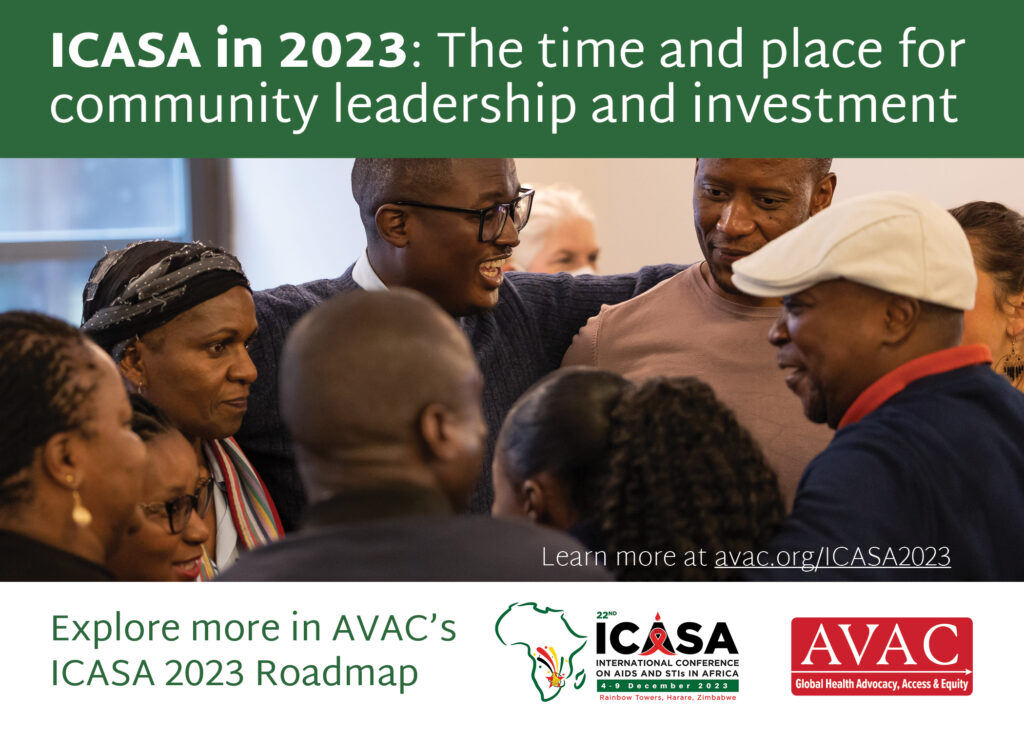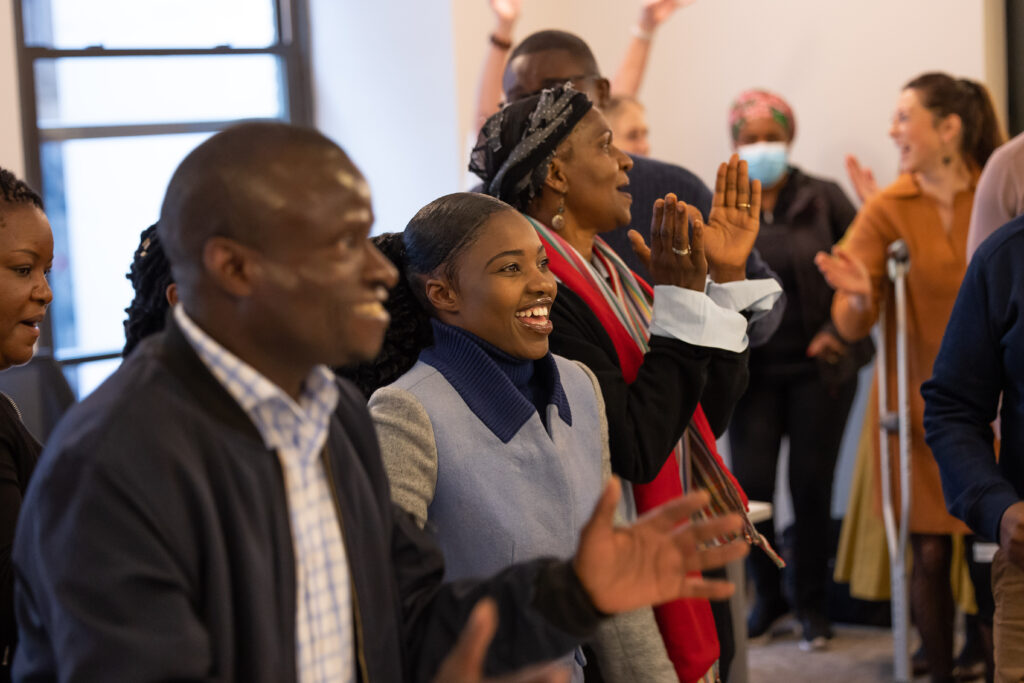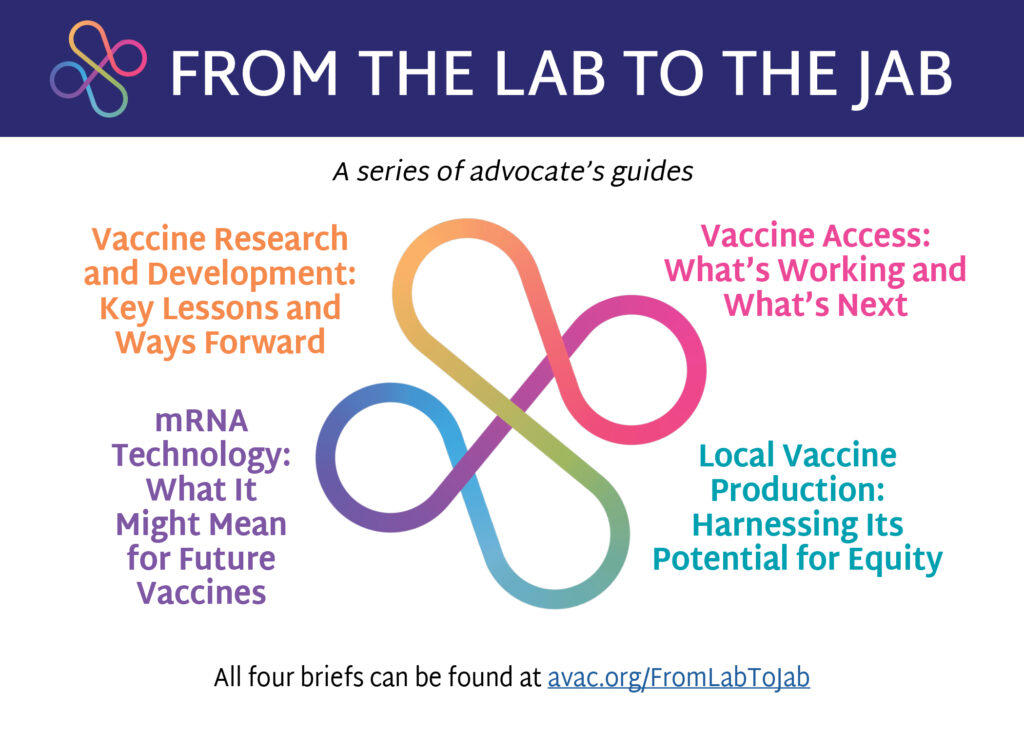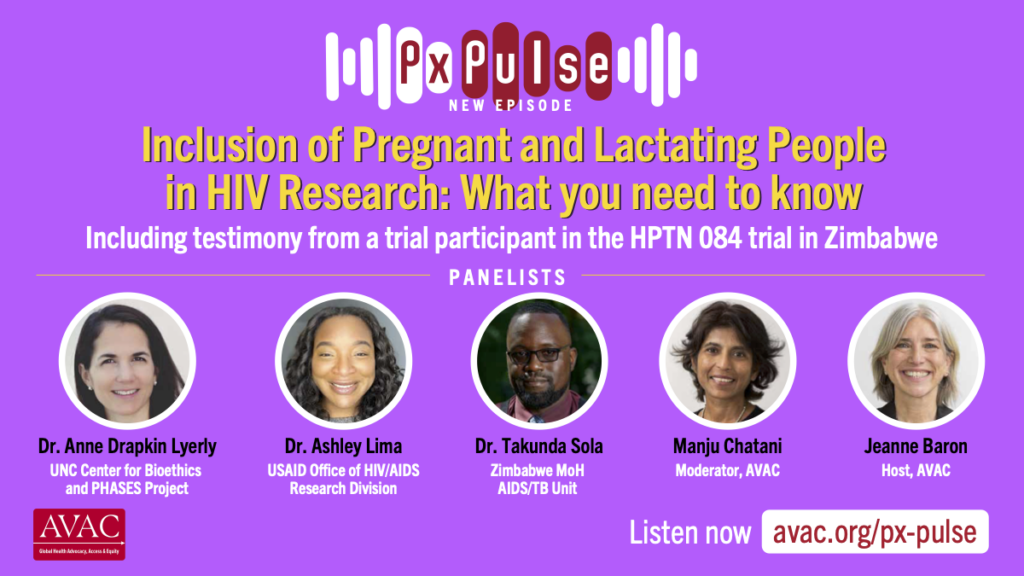Join AVAC and partners for the biennial International Conference on AIDS and Sexually Transmitted Infections (ICASA), in Harare, Zimbabwe December 4-9. More than 30 of our partners will convene at the meeting to champion community leadership and amplify their role in shaping local, national and global responses and delivering impactful advocacy. Community leadership on a range of issues are instrumental to:
- Accelerate and expand access to proven prevention options that people want and need.
- Dismantle the structural barriers to health faced by key populations.
- Intensify demands for robust domestic and global funding for health.
- Integrate HIV services with sexual and reproductive health.
- And much more.

Scroll down for a roadmap to ICASA’s prevention program, and details on sessions and events that you won’t want to miss.
- Download the ICASA Prevention Roadmap
- Visit us and our CASPR partners at booth #9
- Check out our partners at the Women’s Networking Zone in the Community Village
- Follow the conversation on Twitter
Sessions of Interest
Sunday, December 3
- Biomedical Prevention Forum
9:00-15:00 GMT
The Biomedical Prevention Forum will be held as a hybrid event bringing together advocates, civil society representatives, researchers, government officials and front-line providers to explore and discuss the latest advancements, challenges, and opportunities in biomedical HIV prevention, while emphasizing the importance of choice and its transformative impact on HIV prevention efforts. This is an open event. Register here. - Key Populations Preconference
9:00-15:00 GMT
The Africa Key Populations Experts Group (AKPEG), African Sex Workers Alliance (ASWA), the African Network of People Using Drugs (AfricanPUD) and African Queer Youth Initiative (AQYI) Advocates for Prevention of HIV and AIDS in Africa (APHA), Global Black Gay Men Connect (GBGMC) and partners will host a safe platform to deliberate on the state of the HIV epidemic among Key Populations and to determine the stumbling blocks for progress on the path that ends AIDS for Key Populations.
Monday, December 4
- Empowering Intergenerational Leadership for Women-Controlled HIV Prevention Options: A Path to Ending AIDS by 2030
10:40-11:20 GMT
This satellite session, hosted by ICWEA and APHA, is dedicated to exploring the critical role of women-controlled HIV prevention options. Partners will share and discuss the recently launched HIV Prevention Choice Manifesto, a call for political will and financial investment to ensure access to the prevention options that women and girls in Africa say that they want and need. - Shaping the future of choice in prevention: Gearing up for the rollout of the Dual Prevention Pill, the newest MPT in the toolbox
12:25-13:10 GMT
The Dual Prevention Pill (DPP), a daily pill combining oral PrEP and combined hormonal oral contraception for dual pregnancy and HIV prevention, could be introduced in the next two years and would be the only other MPT available in addition to male and female condoms – and the first MPT containing PrEP. This session will discuss the latest learnings from the DPP Consortium, a coalition of organizations preparing for the introduction of the DPP in Zimbabwe, South Africa and Kenya.
Tuesday, December 5
- Advancing Integrated Biomedical Prevention: Best Practices from Zimbabwe (Session 2)
8:45-09:30 GMT
This satellite session will discuss best practices and lessons learned from the delivery of biomedical HIV prevention and Voluntary Medical Male Circumcision services as we work to further universal health coverage and robust health systems. Partners will launch a global call to action to unite, mobilize, and advocate for continued prioritized funding, sustained commitment, and strategic integration of VMMC into national and global prevention strategies. - Catalyzing a sustainable HIV prevention agenda: Approaches to expand local action on global commitments
10:45-11:30 GMT
Leveraging new strategic plans for HIV prevention, including the PEPFAR’s 5-year Strategy and UNAIDS’ Prevention Road Map, this satellite session will discuss combination prevention in the context of a sustainable HIV response and highlight a variety of approaches and models that leverage country and stakeholder-led innovations to meet the challenge. - Coordinating Implementation Science for CAB for PrEP: BioPIC’s Implementation Study Tracker
12:25-12:35 GMT
In this oral abstract session, AVAC will present a new dashboard, which reflects all currently known activities relating to implementation research, modelling, clinical research, and landscaping for new late-stage biomedical HIV PrEP options, including cabotegravir for PrEP and the dapivirine vaginal ring. - Policy, Politics and HIV Management
13:05-13:50 GMT
In this oral abstract session, Princess Mharire from Pangaea Zimbabwe AIDS Trust (PZAT) will present, Beyond Metrics: How the Simple Participatory Assessment of Real Change (SPARC) Tool Provides a Holistic Approach to Advocacy Measurement, and Joseph Njowa of PZAT will share the COMPASS MERL model in a presentation, Innovative tools for planning, monitoring, and evaluation of advocacy campaigns.
Wednesday, December 7
- A Whole Government Approach: Addressing a Multi-layered Challenge of New HIV Infections, SGBV and Adolescent Pregnancy (Triple Threat)
12:05-12:50 GMT
This concurrent session will feature AVAC’s Grace Kumwenda, Regional Program Manager for Research Engagement.
Friday, December 8
- Strengthen integration for better SRHR outcomes
10:45-11:30 GMT
This concurrent session will feature Advocates for Prevention of HIV and AIDS in Africa’s (APHA) Yvette Raphael and will explore linkages between unintended pregnancies, unsafe abortion, and HIV. - HIV Prevention-Right Place, Right time
13:05-13:50 GMT
This concurrent session will feature Maureen Luba of AVAC, Definate Nhamo of PZAT and Yvette Raphael of APHA.
AVAC and Partner Poster Presentations
Tuesday, December 5
- Maximizing private pharmacies for PrEP delivery to increase uptake: Lessons learnt from the Community Retail Pharmacy Distribution Point, Ruth Akulu
Wednesday, December 6
- Journalist Training: A Key Advocacy Strategy, Catherine Madebe
- Perceptions on the new biomedical HIV prevention methods among adolescent girls and young women in tertiary institutions in Zimbabwe, Cleo Makura
- Lessons from Crisis Response from TaNPUD in Enhancing Harm Reduction from 2015 to 2018, Marineus Mutongore
- Implementing Community led Monitoring for improved quality of HIV services in Tanzania, Mathew Kawogo
- Impact of social media exposure on HIV services uptake among Tanzanian Young people: Implications for enhancing the HIV response, Marineus Mutongore
- Effective Strategies for Operating COWLHA support groups of Adolescents Living with HIV: Case of Mangochi and Chikwawa Districts of Malawi, Harry Madukani
Thursday, December 7
- Understanding Choice of HIV Prevention Options among Adolescent Girls and Young Women (AGYW) in Zambia, Natasha Mwila
- Leveraging HIV to Build a Global Health Research and Development (R&D) Equity Advocacy Agenda, John Meade
- Championing advocacy for domestic resource mobilization for health research and development in Africa, Ethel Makila
Friday, December 8
- Rural Youth: Underserved and Unsafe When Seeking Care, Liyema Somnono
- Redefining Coalition Governance and Leadership in Support of Decolonizing Global Health: The Evolution of the COMPASS Coalition, Roberta Sutton
- Collaborative Monitoring & Evaluation to Support Learning and Strengthen Advocacy Coalitions: The MERL Hub, Grace Tetteh
- Realities faced by street children predisposing them to HIV and STIs in Dodoma and Dar es Salaam Cities in Tanzania, Simon Shilagwa














